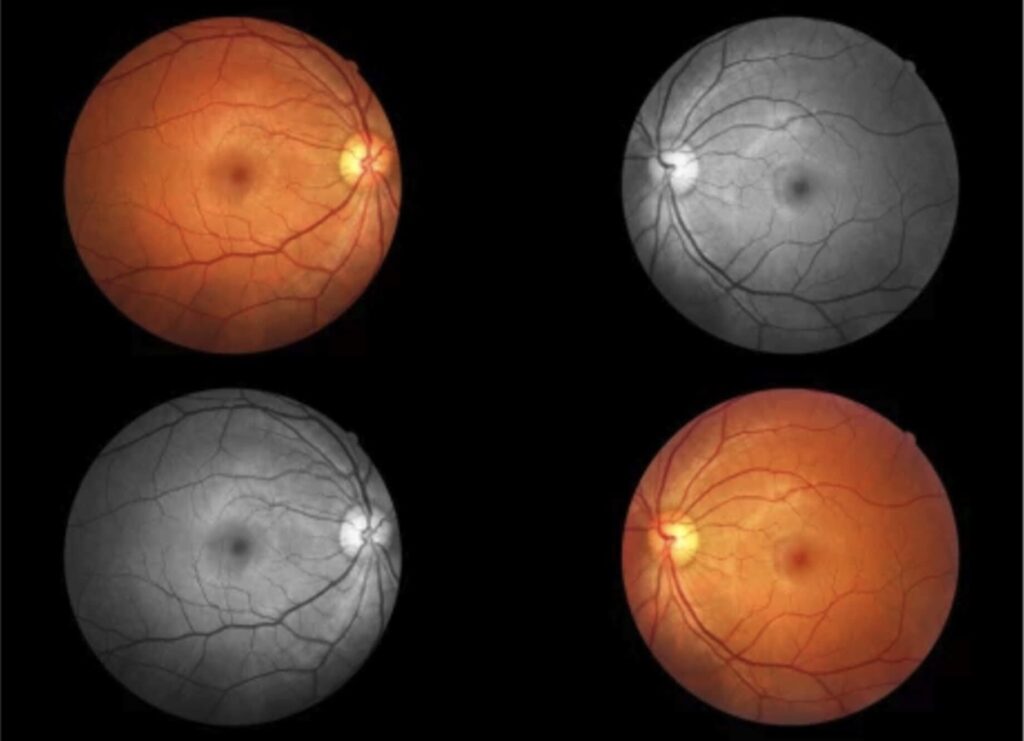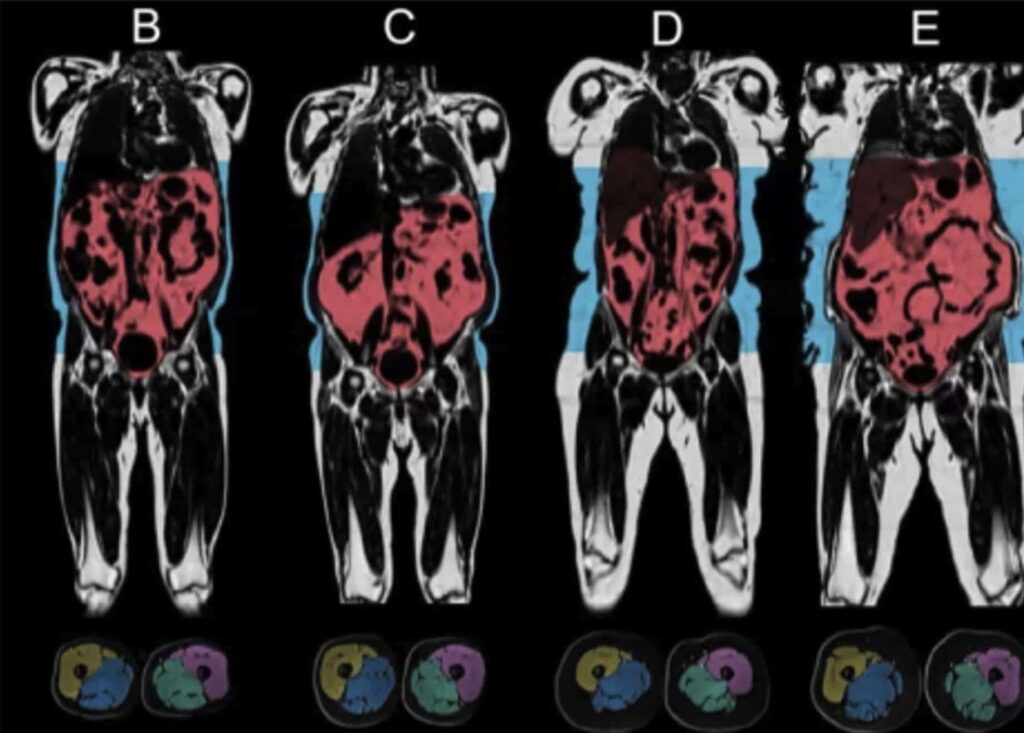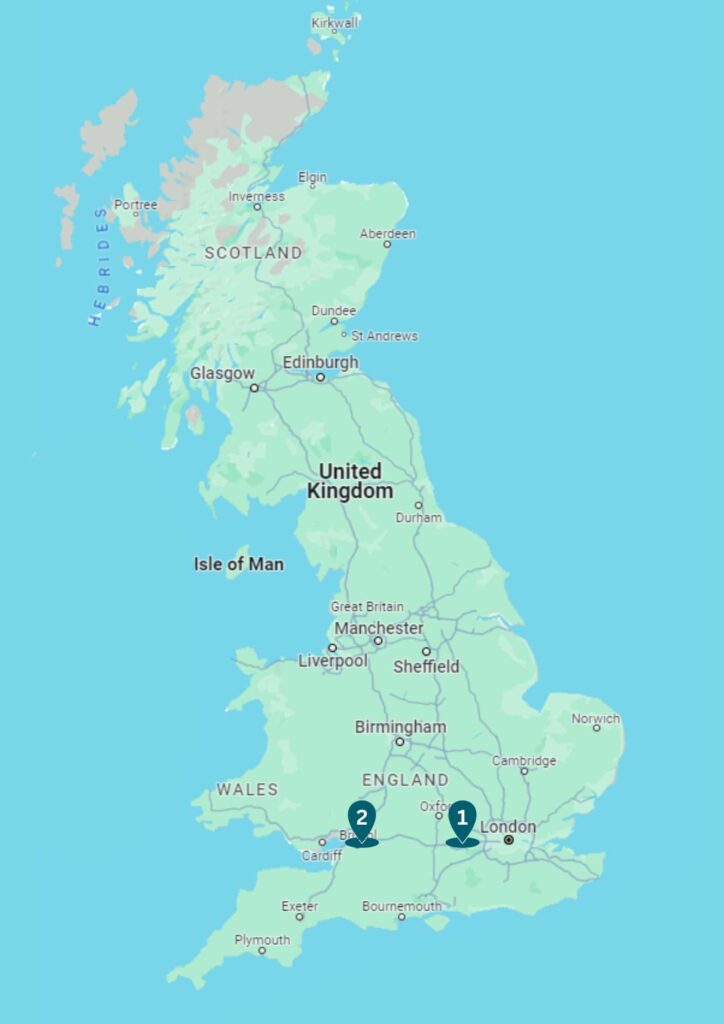Be part of the world’s largest whole-body scanning project to transform the way we diagnose, prevent and treat our most chronic diseases.
The UK Biobank Imaging Project captures whole-body scans of participants as they age through safe, non-invasive methods. 1 billion images have been taken so far (12,000 per person).
Imaging data can reveal why one person develops a life-altering condition when others do not. By combining imaging data with existing genetic and lifestyle data from our half a million participants, scientists can identify the genetic variants associated with any changes, enabling earlier diagnoses and targeted treatments of diseases.
For example, researchers can investigate how changes to retinal structure might indicate rare eye disorders, or explore the links between organ ageing and disease.
UK Biobank’s imaging project started 10 years ago. You may have already had your first scan. If so, please keep an eye out for your invitation to our repeat imaging project.
Read the imaging information sheet.
A unique picture of health
“The repeat imaging of thousands of volunteers will enable researchers to see subtle changes in the body that develop over the years – these may give early warning of conditions like heart disease and dementia long before there are any symptoms. UK Biobank is largely an unsung British success story…I feel really privileged to be part of UK Biobank.”
Fergus Walsh
What’s involved?
Find out more
How the UK Biobank Imaging Project is transforming health
Eye-opening retinal research
The genetic basis of rare eye diseases was explored using UK Biobank’s OCT (optical coherence tomography) imaging and genomic data.
Researchers at the European Bioinformatics Institute found that changes to the structure of the retina, for instance to the thickness of the layers in the retina’s light-detecting ‘photo receptor’ cells, may indicate retinal disorders.
This study identified new specific genes associated with these structural changes. Such insights have generated further research questions about rare eye diseases and will help to improve future diagnoses and therapies.

Stopping the clock for organ ageing
In a world-first study looking at images of multiple organs to understand how we age, it was revealed that a specific organ’s ‘biological age’ can influence the ageing of other organ groups.
Researchers at the Universities of Melbourne and Newcastle and the National University of Singapore used UK Biobank imaging data for this research.
The study also investigated the influence of 16 chronic diseases on organ ageing. The research may help to identify individuals at risk of age-related diseases earlier, and even to limit ageing within specific organs.

Getting to the heart of things
A recent study has revealed intricate heart-brain connections illuminating the close relationship between major cardiovascular and brain diseases such as stroke or dementia.
Researchers from three universities in America found that cardiac traits identified using MRI data (such as chamber volume) significantly influenced brain health. The research also uncovered shared genetic influences between linked heart and brain diseases.
The multi-organ focus of the study is invaluable to our understanding of how one organ’s diseases can impact another, and will pave new ways for disease risk prediction and prevention.
A step ahead of dementia
Scientists have identified a causal link between habitual napping and larger overall brain volume, the latter of which is linked to lowered risk of dementia and other diseases.
Researchers from University College London and the University of the Republic in Uruguay used genetic and MRI brain scan data from UK Biobank participants.
The study characterised genetic variants thought to determine likelihood of habitual napping. The average difference in brain volume between those genetically-programmed to habitually nap and those who are not was equivalent to 2-6 years of ageing.
Get involved and what to expect
-
Before your visit
Please read the UK Biobank repeat imaging information sheet beforehand so you can prepare for your appointment. In this video, participants explain how they found their imaging experience.
-
Arrival
On arrival, you will be greeted by our friendly reception staff. You will need to give consent to take part before changing into a gown.
-
Brain scan
You will be led through to one of our MRI scanning rooms to undergo imaging of the structure and function of your brain.
-
Heart and body scan – 30 mins
You will move through to our MRI scanning bed to have both your heart and abdomen imaged. Pads will be placed over your middle, which help us to take clearer images of your organs.
-
Neck scan – 10 mins
We will use an ultrasound machine, the same type used on pregnant women, to scan the two main arteries either side of your neck.
-
Bone scan
We will use a DXA machine to take detailed pictures of your skeleton.
-
Eye measurements – 10 mins
We will capture detailed pictures of your eyes, including the retinas and blood vessels, using a similar machine to the one used in opticians for standard eye tests.
-
Blood sample – 10-15 mins
Much like when you joined UK Biobank, we will ask you for a small donation of blood. This will take around 10-15 minutes.
-
Physical measures and touchscreen questionnaires – 90 mins
During your visit, we will take physical measures such as your height, weight and blood pressure. We will also ask you to undertake some touchscreen questionnaires on the computers at the centre.
-
The end of your visit
At the end of your appointment, you will be given a brief report of some basic measurements taken during your visit. We will also give you the travel expenses form to take away with you.
You said, we did
We have listened to feedback from participants following their imaging visit to help us to improve the experience for others.
‘The MRI scanner rooms can feel cold.’
Warm blankets are now available if you need them.
‘The visit is long, and would be helped by snacks.’
There is tea, coffee, biscuits and fresh fruit available for you.
‘I don’t think that the gowns fit well.’
We have improved our selection of gowns for your comfort and dignity.
‘I’m unsure how data from my scans is helping science.’
The scientific impact of your time and effort is displayed on screens and walls in the Imaging Centres.
‘I would like to receive a reminder about my appointments.’
We send reminders about your visit and schedule an introductory call with you a week before your appointment.
“I felt comfortable and reassured from the moment I entered the building. The centre is extremely well run with people who know their jobs. There was excellent communication between each department.”
UK Biobank participant, Reading
Find our centres
Our assessment centres
Our repeat imaging project has started at our Newcastle and Stockport Imaging Centres. We will be commencing repeat imaging at our Reading and Bristol Imaging Centres from 2025. We would like you to return to the same imaging centre that you attended for your initial imaging assessment.
- Reading Imaging Centre
Unit 3B, Pincents Kiln Industrial Park, Pincents Kiln, Calcot, Theale, Reading RG31 7SD.
Get directions - Bristol Imaging Centre
Unit G4b, Bolingbroke Way, Patchway, Bristol, BS34 6FE.
Get directions
Video directions
About your visit
Our centres are open between 08:00 and 20:00, seven days a week, with the last appointment beginning at 15:20.
We can reimburse travel expenses and free parking is available.

Frequently asked questions
What is UK Biobank?
UK Biobank is a large-scale biomedical database and research resource that contains genetic, lifestyle, and health information from half a million UK participants, of which you are one. Volunteers who were aged between 40 and 69 years when recruited between 2006 and 2010 provided detailed information about lifestyle, as well as having physical measures taken and blood, urine, and saliva samples collected and stored for future analysis.
UK Biobank’s database, which now also includes genetic data for all participants and the heart, body, brain, neck artery, bone, and eye scans from around 85,000 participants, is globally accessible to approved researchers who are undertaking health-related research that is in the public interest.
While taking part in UK Biobank is not intended to help you directly, it should give future generations a much better chance of living their lives free of diseases that disable and kill. UK Biobank’s research resource is a major contributor to the advancement of modern medicine and treatment, enabling better understanding of the prevention, diagnosis, and treatment of a wide range of serious and life-threatening illnesses – including cancer, heart diseases, and stroke.
UK Biobank is generously supported by its founding funders the Medical Research Council and Wellcome, as well as the Department of Health and Social Care, the British Heart Foundation, and Cancer Research UK.
The organisation has around 300 dedicated members of staff, based in multiple locations across the UK.
Am I eligible to take part?
All of these scans are safe and painless. The scanners are similar to those used routinely in the NHS.
However, since MRI scans involve the use of a magnet, you may not be able to take part if you have an electrical implant (for example, a pacemaker) in your body, metal in certain parts of your body, or if you have had an accident where metal may have entered your body.
If you have had recent surgery, you will not be able to take part for at least six weeks after your operation. You will also not be able to take part if you have medical problems that make it difficult to carry out the scans (for example, severe hearing or breathing problems, or tremors).
If you would like to take part but think you might not be eligible to do so, we would still like you to telephone us so that we can check this for you.
Please call 0800 0 276 276, Monday-Friday, 09:00-17:00.
Do I get any results from the visit?
It is important to understand that the visit is not a clinical appointment or a health check.
We will give you information at the end of the visit about a few of the measurements we take during the assessment (blood pressure, weight, body mass index, waist circumference, percent body fat, and lung function, if measured). However, we will not provide any other results or images from the scans. This is in accordance with the consent you provided when you agreed to take part in UK Biobank.
Scans are being undertaken for research purposes only.
What if something suspicious is seen during my scans?
The scans we do are not intended to diagnose disease. They are not designed to find any particular abnormalities and will not be routinely analysed by doctors or other specialists. The radiographers who do the scans will be looking at the images to make sure of their quality, rather than looking for evidence of any health problems.
However, abnormalities can show up during the scanning process on scans taken for research purposes. Most of these are no cause for concern but if the radiographer does happen to notice a potentially serious abnormality while taking the scan, they will refer the scans after your visit to a specialist doctor (radiologist) for review.
If the radiologist agrees that the abnormality is potentially serious (regardless of whether or not it might be treatable), we will write to you and your GP, usually within a few weeks of your visit.
We would consider something to be potentially serious if your scans suggested the possibility of a condition which, if confirmed, could have a major effect on how your body functions or on your quality of life, or could be life-threatening.
For example, we would tell you and your GP if we saw an abnormality on one of your scans that looked as though it could be a malignant tumour or another similarly serious condition, such as a large swelling of the aorta (the main artery of the body).
On the other hand, we would not tell you if we saw typical appearances of gallstones, a simple cyst, or scarring (e.g. on the lung) as these abnormalities are common in healthy people and are not considered serious.
We would also not tell you about something that is clearly related to a health condition that you have already told us about.
Finally, we would not tell you about a potentially serious abnormality if it was identified at a later date by researchers analysing the scans.
From our experience so far, about two out of every hundred people taking part in this visit (2%) will have an abnormality that a radiologist agrees is potentially serious and which we will write to you and your GP about. About one in three of these people will turn out to have something serious that they may not have been aware of before, while two out of every three of these people will turn out to have something non-serious. This happens because something that looks suspicious on one of our research scans can turn out to be something like a benign cyst, an artefact (or technical glitch) of the scanning process, or something that you or your GP already know about (but we do not).
It is important to understand that we will not notice all potentially serious abnormalities. For this reason, if you do not receive any feedback from us about a potentially serious abnormality, you should not regard this as reassurance about your health. It should not stop you from seeing your doctor about any health concerns that you might have.
What should I do if I am interested in attending?
Please let us know if you would like to take part by phoning us on: 0800 0 276 276 (Monday – Friday 09:00-17:00).
During this call, you will be able to ask us any questions that you might have. We will also ask you some questions about your medical history to check your suitability for the scans.
If you are eligible to take part, we will arrange an appointment for you.
Appointments are generally available from Mon-Sun 08:00-14:45 and last for 4-5 hours.
We will send you a letter confirming your appointment and give you directions to the assessment centre. If you have provided us with an email address and mobile phone number, we will also send you an email or text reminder a couple of days before your visit.
Can I claim travel expenses?
You can claim the cost of travel to the assessment centre by public or private transport, using the claim form that we will provide you with.
Train and other public transport (i.e. bus, tram, Metro or underground).
For train travel, please keep in mind the following:
- Please buy standard tickets (i.e. not first-class).
- Booking in advance usually means that you get the best value tickets. Where possible, please avoid booking open return tickets
as these tend to be the most expensive. - Buying split tickets may reduce the overall price of your fare. See www.splitticketing.com to find out more.
Private transport (car, motorcycle, or bicycle)
We will reimburse you for mileage to and from the assessment centre.
Current mileage allowances can be found in our participant travel expense claim policy and we will advise you about this when you telephone us to enrol in the study.
Car parking
There is free parking at the centre. If you park elsewhere, you can claim car parking costs (but not fines).
Tolls and tunnel fees
Tolls and tunnel fees may be claimed.
If you need someone to help you during the journey, you can also claim travel expenses for a companion. Please be aware that space
in the reception area of our assessment centres is limited and it may not be possible for your companion to wait whilst you complete your visit. We will advise you about this when you telephone us to enrol in the study.
Please keep your travel receipts and attach them to your claim form. We will provide you with one at the end of your visit.
How to take part
Contact our team today
Call our team to take part in our imaging project or if you have further questions. If you call us we will complete a short telephone questionnaire with you. This is to make sure that it is safe for us to scan you.
Telephone:
0800 0 276 276
Contact hours:
Mon-Fri | 09:00-17:00
Request a telephone call back
If you would prefer us to contact you, please fill in our request a call back form and we will call you at your preferred time.
Keeping your data private and secure
We know that information about your health and lifestyle is personal and private to you, and we made a commitment when you joined the study to protect your confidentiality. Information that identifies you – for example, your name, address, and NHS number – is never shared with researchers.
We take our commitment to protecting your data, including data from your imaging scans, very seriously. We continue to invest in the latest technology to keep us ahead of the curve.


